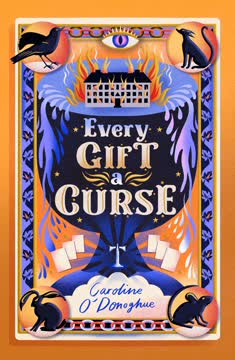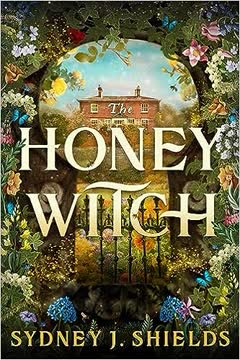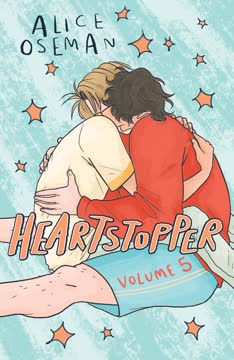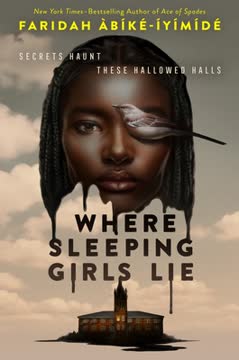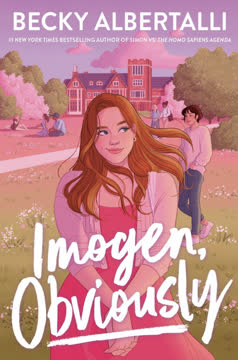Plot Summary
Thirty-Six Days of Guilt
Maeve, the sensitive at the heart of Kilbeg's magical world, is wracked with guilt after the deaths of Heather Banbury and Sister Assumpta. The group of friends—Maeve, Roe, Fiona, Lily, Nuala, Manon, and Aaron—gather in the aftermath, uncertain if they are responsible or merely victims of fate. The Housekeeper, a vengeful spirit, looms over them, her presence a threat that could be summoned at any time. Maeve's relationships are strained, her family distant, and the group's unity is fragile. The city's beauty is heightened by fear, and Maeve's sense of impending doom colors every interaction. The group debates justice, guilt, and the cosmic forces that seem to govern their lives, setting the stage for a reckoning none of them can avoid.
The Housekeeper's Shadow
The Housekeeper's legend haunts the group, her past appearances tied to acts of desperate justice. Maeve and her friends, dubbed the Apocalypse Society, are acutely aware that The Housekeeper's return could mean death for any of them. Aaron's disappearance after a confrontation with Dorey, the manipulative leader of the Children of Brigid, leaves the group on edge. The boundaries between friend and foe blur, and Maeve is forced to confront the darkness within herself, wondering if she is capable of the same violence as her enemies. The group's magical gifts—telepathy, healing, machinery, and more—are both a blessing and a curse, binding them together in a web of secrets and unresolved trauma.
Return of the Lost
Aaron returns unexpectedly, sparking a physical and magical confrontation with Roe that nearly brings down the school. Their combined powers, fueled by anger and unresolved history, cause a supernatural backlash—temporary blindness and a near-collapse of the building. The group's dynamic is further strained by suspicion, jealousy, and the resurfacing of old wounds. Aaron reveals he's been investigating the Children's new stronghold, the Lodge, where vulnerable teens are being manipulated and possibly harmed. The group realizes they are being watched and targeted, their every move anticipated by Dorey and her followers. The stakes are raised as missing posters for local teens appear, hinting at a larger, more sinister plot.
The Lodge's Secret
Through magical investigation and the use of a bewitched camera, the group uncovers the Lodge's location—a failed luxury hotel on a fairy fort, now a cult compound. Aaron shares harrowing stories of abuse and psychological manipulation within the Lodge, where teens are starved and isolated to break their will. The Children's methods are revealed to be a twisted blend of religious fervor and magical exploitation, designed to create "false saints" whose suffering powers the Well of Kilbeg. The group is horrified by the scale of the operation and the complicity of adults in the community. The urgency to act grows as more girls go missing, and the group debates how to intervene without falling into Dorey's traps.
Missing Girls, Missing Time
The disappearance of Lorna McKeon, a quiet classmate, becomes a focal point for Maeve's anxiety. The group tracks her absence through online classes and social media, piecing together her connection to the Children and the Lodge. The sense of helplessness is compounded by the community's indifference—missing girls from marginalized backgrounds are barely noticed. The group's own relationships are tested by secrets, jealousy, and the pressure of impending adulthood. As Christmas approaches, the contrast between ordinary teenage milestones and the supernatural dangers they face becomes painfully clear. The group's unity is threatened by internal conflict, even as the external threat grows more dire.
The Witches Exposed
A tabloid article exposes Maeve, Fiona, and Lily as the "Witches of St Bernie's," subjecting them to ridicule and suspicion. The group is forced to confront their public image and the ways in which their magical identities set them apart. Lily, seeking agency, transforms her appearance and begins tattooing herself and her friends—a symbolic act of reclaiming her body and narrative. The group's bonds are tested at a Christmas party, where old social hierarchies and new traumas collide. Maeve's impulsive defense of Lily leads to a public outburst and the accidental use of her evolving powers, causing blindness in a classmate and further alienating her from her peers.
Fractures and First Kisses
The aftermath of the party leaves Maeve isolated, her relationships with Fiona and Lily strained by her actions. The group is forced to reckon with the consequences of their powers and the ways in which trauma has changed them. Lily experiences her first kiss, a moment of hope amid the chaos, while Maeve seeks solace in the haunted corridors of the school. The boundaries between the living and the dead blur as Maeve attempts to communicate with Sister Assumpta's spirit, searching for guidance and forgiveness. The group's unity is at its lowest ebb, and Maeve is left to confront the darkness within herself alone.
The Party and the Price
Maeve's confrontation with Aaron in the school leads to a shared vision of the past, revealing the origins of The Housekeeper and the cyclical nature of violence and vengeance. The group learns that the Children's power is rooted in the suffering of their followers, and that Dorey's ultimate goal is to harness the Well's magic through orchestrated martyrdom. The lines between victim and perpetrator blur, and Maeve is forced to question her own capacity for cruelty. The group's investigation brings them closer to the truth, but also closer to the edge of destruction, as The Housekeeper's influence grows stronger within Maeve.
Blindness and Betrayal
Maeve's evolving powers manifest in unpredictable ways, causing blindness and physical harm to those around her when she is overcome by rage or fear. The group is forced to confront the reality that Maeve may be becoming the very thing they fear—The Housekeeper herself. Aaron's psychoanalysis reveals that Maeve's transformation is both magical and psychological, a merging of her own trauma with the legacy of The Housekeeper. The group debates whether to try to save Maeve or to stop her, even as Dorey's plans accelerate. The sense of betrayal and helplessness deepens, and Maeve is left to grapple with the possibility that she is losing herself to the curse.
Ghosts in the Corridors
Maeve and Aaron are drawn into a supernatural corridor within the school, experiencing visions of The Housekeeper's life and the injustices that led to her transformation into a vengeful spirit. They witness the abuse and betrayal that created The Housekeeper, understanding that her rage is rooted in centuries of exploitation and silencing. The corridor becomes a liminal space where past and present, living and dead, intersect. Maeve realizes that the only way to break the cycle is to confront the source of the curse and to make a choice about her own role in the legacy of vengeance. The group prepares for a final confrontation, uncertain of what will be left of themselves when it is over.
The False Saint Method
Manon's research uncovers the "False Saint Method"—the Children's strategy of manufacturing suffering to draw power from the Well. The group realizes that Dorey intends to orchestrate a mass martyrdom at the Lodge, sacrificing her followers to achieve a final, devastating miracle. The urgency to act is heightened by the discovery of the bodies of missing girls, and the group is forced to confront the limits of their own power and the cost of intervention. The plan to storm the Lodge is fraught with danger, and the group must decide whether to risk everything to stop Dorey or to save themselves. The lines between heroism and complicity blur as the stakes become life and death.
The Housekeeper's Origin
In a ritual to sever The Housekeeper's hold, Maeve undergoes a vision quest, reliving The Housekeeper's final days and the betrayal that turned her from protector to demon. She witnesses the theft of The Housekeeper's sight and agency, understanding that the curse is not merely magical but a legacy of systemic injustice. Maeve is given the choice to kill The Housekeeper and end the cycle, or to find another way. The vision is both a test and a revelation, forcing Maeve to confront her own capacity for mercy and her responsibility to the past. The ritual fails to sever the curse, but Maeve emerges with a new understanding of her role and the possibility of transformation.
The Curse Awakens
Maeve, unable to destroy The Housekeeper, chooses instead to share the burden of the curse with her friends. Through a symbolic act of tattooing, Maeve, Lily, Fiona, and Roe each take on a portion of The Housekeeper's power and responsibility. The act is both a sacrifice and a declaration of solidarity, binding them together in a new kind of coven. The group's unity is restored, but at the cost of their individual freedom and innocence. The Housekeeper's legacy is transformed from a solitary curse into a collective mission, and the group prepares to confront Dorey and the Children one final time.
The Impossible Choice
The group infiltrates the Lodge as Dorey prepares to enact her final miracle—a mass sacrifice to draw the Well's power. The scene is chaotic and apocalyptic, with fire, smoke, and panic as the Children's followers realize they are being led to their deaths. The group's combined powers are pushed to their limits as they fight to save as many as they can and to stop Dorey. Maeve, now fully merged with The Housekeeper, confronts Dorey in a battle of wills and magic. The choice is stark: to perpetuate the cycle of vengeance or to find a new way forward. The outcome will determine not only their own fates but the fate of Kilbeg itself.
The Ritual of Undoing
In the aftermath of the battle, Maeve uses her power to trap Dorey within a new tarot card, transforming her from a source of suffering into a guardian of justice. The act is both an exorcism and a reimagining of The Housekeeper's role, turning her from a weapon of vengeance into a force for protection. The group's sacrifices are acknowledged, and the cost of their victory is made clear. The Lodge is destroyed, the Children are scattered, and the Well is safeguarded—for now. Maeve accepts her new role as The Housekeeper's host, vowing to use her power to protect the vulnerable and to break the cycle of violence that created the curse.
The Gift Returned
Maeve and her friends gather at St Bernadette's to perform a final ritual, offering the house—and themselves—as a gift to The Housekeeper. The act is both a surrender and an assertion of agency, transforming the curse into a covenant. The group's unity is reaffirmed, and their individual destinies are acknowledged. Maeve accepts the limitations and responsibilities of her new role, finding meaning in service and solidarity. The story ends with a sense of hope and possibility, as the group looks to the future, determined to use their gifts for good and to honor the legacy of those they could not save.
The Last Miracle
In the days following the Lodge's destruction, the group grapples with the trauma and loss they have endured. The deaths of Lorna and Sophia haunt them, a reminder of the limits of their power and the cost of inaction. The community's response is inadequate, focused on containment rather than justice. Maeve's relationship with her family is strained by secrets and grief, but she finds solace in the bonds she has forged with her friends. The group's sacrifices are both celebrated and mourned, and the future remains uncertain. The story ends with a recognition that survival is not victory, and that the work of healing and justice is ongoing.
The Housekeeper's Legacy
Maeve, now fully The Housekeeper, embraces her role as protector of Kilbeg and guardian of the Well. The group's shared burden becomes a source of strength, and their collective action offers a model for resistance and resilience. The story closes with a sense of continuity and transformation—The Housekeeper's legacy is no longer one of vengeance, but of care and community. Maeve's journey from guilt and isolation to acceptance and purpose is complete, and the group's unity is reaffirmed. The final image is one of hope: The Housekeeper's power, once a curse, is now a gift—shared, chosen, and used to protect those who cannot protect themselves.
Characters
Maeve Chambers
Maeve is the protagonist, a teenage girl with telepathic abilities and a deep connection to the magical Well beneath Kilbeg. Haunted by guilt over the deaths she's witnessed and the violence she's both suffered and inflicted, Maeve is fiercely loyal but often impulsive, struggling with self-doubt and a fear of her own darkness. Her journey is one of reluctant acceptance—of her power, her responsibility, and her role as the new host of the Housekeeper. Maeve's relationships are complex: she loves Roe deeply but is drawn to Aaron's shared trauma; her friendships with Fiona and Lily are tested by secrets and sacrifice. Maeve's arc is one of transformation—from victim to agent, from isolated to interconnected, from cursed to chosen.
Roe O'Callaghan
Roe is Maeve's partner and the group's emotional center, gifted with the ability to communicate with machines and manipulate technology. Their journey is one of self-acceptance, coming out as nonbinary and pursuing a career in music even as the magical world threatens to pull them away. Roe's relationship with Maeve is passionate but fraught, tested by jealousy, distance, and the demands of destiny. Roe's loyalty is unwavering, but they struggle with the fear of being left behind or rendered irrelevant. Their arc is about finding balance—between ambition and responsibility, love and independence, magic and the mundane.
Fiona Buttersfield
Fiona is the group's healer, able to mend wounds and knit together broken bodies. Outwardly confident and charismatic, she aspires to be an actor and is thrust into the public eye by both scandal and opportunity. Fiona's internal struggles—self-harm, anxiety, and the pressure to be perfect—are masked by her charm. Her relationship with Manon is a source of longing and vulnerability, and her friendship with Maeve is both a lifeline and a source of conflict. Fiona's arc is about reconciling her desire for escape with her responsibility to those she loves, and learning that healing others sometimes means accepting help herself.
Lily O'Callaghan
Lily, once Maeve's shy best friend, is forever changed by her time as a river spirit. Her gift is electrical, her presence both grounding and unpredictable. Lily's journey is one of reclaiming agency—through art, tattoos, and acts of rebellion—and learning to live with trauma without being defined by it. Her first kiss and her willingness to share the Housekeeper's burden mark her growth from victim to co-protector. Lily's perspective is often philosophical, her humor dark, and her loyalty absolute. She embodies the possibility of transformation and the power of choosing life after loss.
Aaron Branum
Aaron is an American former cult leader, gifted with the ability to see vulnerabilities and memories. His past is marked by manipulation, guilt, and a desperate search for belonging. Aaron's relationship with Maeve is fraught with shared trauma and mutual recognition; he is both a mirror and a warning. His arc is one of atonement—trying to undo the harm he's caused, to protect those he once endangered, and to find a new purpose beyond the Children. Aaron's struggle is with self-forgiveness and the fear that he can never truly change.
Nuala Evans
Nuala is the group's adult anchor, a business owner and magical practitioner with a complicated past. Her relationship with her daughter Manon is strained by old wounds and the legacy of failed rituals. Nuala's wisdom is hard-won, her guidance both practical and mystical. She represents the possibility of survival after loss, and the importance of community and tradition. Nuala's arc is about reconciling her past choices with her present responsibilities, and learning to trust the next generation to carry on the work she began.
Manon Evans
Manon is Nuala's daughter, a shapeshifter and demigod with roots in French folklore. Her power is in transformation—of self, of others, of situations. Manon's relationship with Fiona is a source of both hope and heartbreak, and her struggle is with identity and acceptance. As an outsider, she brings a critical perspective to the group's dynamics and the magical world's rules. Manon's arc is about finding a place to belong, embracing vulnerability, and using her power for collective good rather than personal gain.
Dorey (Isadora Manford)
Dorey is the leader of the Children of Brigid, a master of psychological and magical manipulation. Her power is in control—of people, narratives, and the Well's magic. Dorey's motivations are complex: she genuinely believes in the necessity of order and sacrifice, but her methods are ruthless and self-serving. She is both a mirror and a foil to Maeve, embodying the dangers of unchecked power and the seduction of certainty. Dorey's arc is one of hubris and downfall, ultimately trapped by the very forces she sought to command.
The Housekeeper
The Housekeeper is both a myth and a presence, a spirit born of betrayal and suffering. Her power is in vengeance, her curse in blindness—forced to enact justice without judgment. As Maeve's transformation progresses, the Housekeeper becomes both antagonist and ally, a source of power and a warning. Her origin is rooted in systemic abuse, and her legacy is a cycle of violence that Maeve must choose to break or perpetuate. The Housekeeper's arc is about the possibility of redemption, the cost of justice, and the need for agency and sight.
Sophia Mulready & Lorna McKeon
Sophia and Lorna are two of the missing girls whose deaths catalyze the group's final confrontation with Dorey and the Children. Their stories are emblematic of the countless vulnerable teens exploited and discarded by systems of power. Their absence haunts the narrative, a reminder of the stakes and the limits of the group's ability to save everyone. They represent both the cost of inaction and the necessity of collective responsibility.
Plot Devices
The Housekeeper's Curse
The central plot device is the Housekeeper's curse—a legacy of magical vengeance passed from one sensitive to another. The curse is both literal and metaphorical, representing the weight of history, the cost of justice without judgment, and the danger of unchecked power. The narrative structure uses visions, rituals, and supernatural corridors to blur the boundaries between past and present, living and dead. Foreshadowing is woven through dreams, tarot readings, and the recurrence of blindness and rage. The story's climax hinges on the choice to perpetuate or transform the curse, using the act of gift-giving and the sharing of burdens as a means of breaking the cycle. The interplay of individual agency and collective action is central, as is the tension between secrecy and solidarity.
Analysis
Every Gift a Curse is a powerful meditation on the legacy of violence, the dangers of charismatic authority, and the possibility of transformation through solidarity. Caroline O'Donoghue reimagines the witch narrative for a contemporary audience, centering queer, neurodivergent, and marginalized voices. The novel interrogates the allure of vengeance and the cost of justice enacted without empathy or sight. Through Maeve's journey, the story explores the tension between individual agency and collective responsibility, the necessity of confronting the past, and the importance of sharing burdens rather than bearing them alone. The use of magical realism and folklore grounds the narrative in a specific cultural context while addressing universal themes of grief, guilt, and the search for meaning. Ultimately, the novel offers a vision of hope—not through the defeat of evil, but through the ongoing work of care, community, and the refusal to abandon the vulnerable. The lesson is clear: true power lies not in domination, but in the courage to see, to choose, and to act together.
Last updated:
Review Summary
Every Gift a Curse received overwhelmingly positive reviews, with readers praising the satisfying conclusion to the trilogy. Many appreciated the character development, magic system, and Irish setting. Themes of friendship, identity, and overcoming challenges resonated strongly. Some found the pacing slow or repetitive, but most were captivated by the story and its diverse representation. Readers expressed emotional connections to the characters and sadness at the series' end. The book's exploration of tarot, witchcraft, and coming-of-age experiences was particularly well-received.
